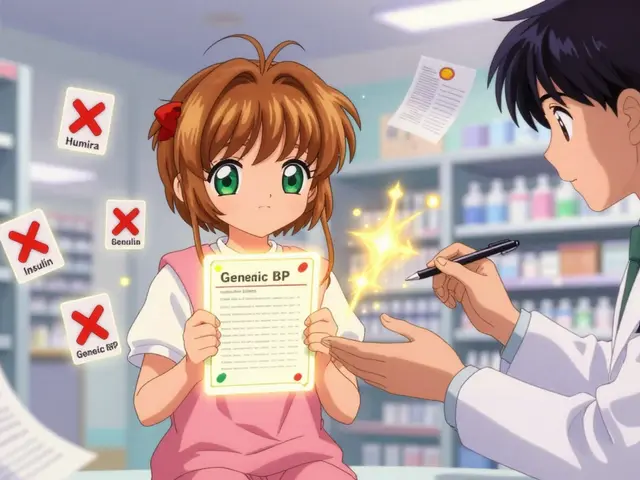When someone is experiencing a bipolar bad day, it can be incredibly difficult to cope with the symptoms. It can affect every aspect of a person’s life, from their ability to focus, to their mood, to their energy levels. It’s important to understand what these symptoms look like so that you can better support yourself or someone you care about who is experiencing a bipolar bad day.
The most common symptoms of a bipolar bad day include:
- A sudden shift in energy levels
- Severe mood swings
- Irritability and agitation
- Feelings of hopelessness or despair
- Inability to concentrate
- Racing thoughts
- Impulsive or reckless behavior
These symptoms can be incredibly overwhelming and can leave a person feeling drained and exhausted. It’s important to remember that it’s okay to take a break when you’re feeling overwhelmed. Find a safe space and allow yourself to feel whatever you’re feeling without judgement.
It’s also important to remember that everyone’s experience is different. Some people may feel more intense symptoms than others, while others may find that their symptoms come in waves. It’s important to be gentle with yourself and recognize that everyone’s experience is unique.
Having a bad day with bipolar can be difficult, but it doesn't have to be unmanageable. Here are some strategies for managing a bipolar bad day:
1. Take Care of Yourself Physically
When you're having a bad day with bipolar, it's important to take care of your physical health. Make sure you're eating healthy meals, drinking plenty of water, and getting enough sleep. Exercise can also help relieve stress and improve your mood. Taking care of yourself physically can make it easier to manage a bipolar bad day.
2. Connect with Others
Connecting with people you trust can help you get through a bad day with bipolar. Talking to a friend or family member about what you're feeling can help you process your emotions and gain perspective. If you don't feel comfortable talking to someone you know, consider reaching out to a therapist or mental health professional.
3. Take Breaks Throughout the Day
When you're having a bad day with bipolar, it's important to take breaks throughout the day. Taking a few moments to yourself to take deep breaths or listen to music can help you reset and refocus. Taking breaks can also help you manage your stress levels, which can help improve your mood.
4. Practice Self-Compassion
It's important to remember that having a bad day with bipolar is not your fault. Remind yourself that it's ok to not be ok, and practice self-compassion. Talk to yourself the way you would talk to a friend or loved one who is going through a difficult time. This can help you feel more supported and less alone.
5. Find Healthy Ways to Cope
When you're having a bad day with bipolar, it's important to find healthy ways to cope. This can include activities like journaling, meditating, or engaging in creative activities. Finding healthy ways to cope can help you manage your symptoms and get through a bipolar bad day.
It can be very difficult to watch someone you care about experience a tough bipolar day. While it is important to offer your support, it is also important to remember that it is not your job to “fix” their bad day. Here are some tips for how you can best support a family member or friend during a bad day:
- Take a step back and allow them to express their feelings. It is important to validate their feelings and allow them to express themselves without judgement.
- Encourage them to take care of their basic needs. This can include making sure they're getting enough sleep, eating nutritious meals, and drinking plenty of water.
- Empathize with them. Let them know that you understand what they are going through and that you are there for them.
- Suggest a calming activity. This can include going for a walk, taking a bath, or doing some kind of creative activity.
- Don’t try to “fix” their problem. It is not your job to diagnose or treat them, but you can offer your support and understanding.
Remember that everyone has bad days, and it is normal to feel overwhelmed and frustrated. The important thing is to be there for your loved one, and to offer your support in whatever way you can.









Craig Stephenson March 9, 2023
Hang in there, you got this!
Tyler Dean March 18, 2023
The whole self‑help industry is just a cash‑grab, fed by folks who don’t want to admit they’re broken.
Susan Rose March 28, 2023
We all have our own ways of riding the storm, and it helps when we share a cup of tea or a quick chat with someone who really gets it.
Just being present can make a world of difference.
diego suarez April 6, 2023
I hear you, Susan. It’s true that a simple “I’m here” can cut through the noise of a chaotic mind.
Sometimes the act of listening is more therapeutic than any medication.
Eve Perron April 15, 2023
Understanding the nuances of a bipolar episode requires both empathy and scientific insight.
While the checklist of symptoms is helpful, the lived experience often defies tidy categorisation.
Individuals may oscillate between hyper‑active mania and crushing depressive lows within hours.
Physical health, such as proper nutrition and regular sleep, forms the foundation upon which mental stability can be built.
Yet, even the most disciplined routine can be upended by unpredictable neurochemical shifts.
Family members should strive to create a safe, non‑judgmental environment, allowing the person to express volatile feelings without fear.
Validation, rather than immediate problem‑solving, often provides the most enduring comfort.
Professional therapy, including cognitive‑behavioral strategies, can equip individuals with tools to navigate intrusive thoughts.
Pharmacological interventions, when prescribed responsibly, may smooth the extreme peaks and valleys of mood.
It is essential, however, to monitor side‑effects and maintain open communication with healthcare providers.
Creative outlets-be it music, painting, or journaling-serve as vital channels for emotional release.
Mindfulness practices, such as guided breathing or progressive muscle relaxation, can gently re‑ground a racing mind.
Social support networks, whether online communities or local groups, offer a sense of belonging that mitigates isolation.
Importantly, self‑compassion should be cultivated daily; harsh self‑criticism only deepens despair.
When a bad day feels overwhelming, a brief pause to breathe, hydrate, and reassess priorities can prevent escalation.
Ultimately, recognising that each day is a unique blend of challenges and possibilities empowers both sufferers and supporters to act with patience and hope.
Josephine Bonaparte April 24, 2023
Its okay to feel like youre stuck, just remember you got people who care and you can take small steps, even if they feel silly.
Meghan Cardwell May 4, 2023
From a neuropsychiatric standpoint, acute dysregulation of dopaminergic pathways often precipitates the classic manic‑depressive cascade; integrating psychosocial interventions with pharmacotherapy can synergistically attenuate symptom severity.
stephen henson May 13, 2023
Great breakdown, Meghan! 👍 That mix of meds and therapy really does the trick for many folks. 🎯
Manno Colburn May 22, 2023
Yo, so when you think about the whole bipolar mess it's like the universe is playing dice with your brain, right? I mean, the way mood swings can feel like a rollercoaster that never stops, it's kinda wild. Some days you feel like you can conquer the world, other days you can't even get out of bed, and no one really gets that paradox. And the meds? They're just a temporary patch, like trying to fix a leaky roof with duct tape. But hey, if you add some mindfulness and a solid routine, maybe the chaos calms a bit. The thing is, society loves to label us, but the reality is far messier. You gotta own the narrative, even when it feels like a script written by someone else. So yeah, keep fighting the good fight, even if it feels like an endless battle.
Namrata Thakur June 1, 2023
Remember, every storm passes, and even on the toughest days you are still a beacon of strength; let that light guide you forward.
Chloe Ingham June 10, 2023
The world may spin in madness, but your resilience shines brighter than any darkness that tries to swallow you.
Mildred Farfán June 19, 2023
Oh sure, because “just think positive” totally solves everything-said no therapist ever.
Danielle Flemming June 28, 2023
Hey friend, picture your mind as a wild garden-sometimes weeds pop up, but with a little watering and sunshine you’ll see those beautiful blooms break through again!
Anna Österlund July 8, 2023
Enough with the flowery fluff; if you’re not taking real action, all that talk is just empty noise.
Brian Lancaster-Mayzure July 17, 2023
Just taking it one breath at a time seems to work for a lot of people when the day gets too heavy.